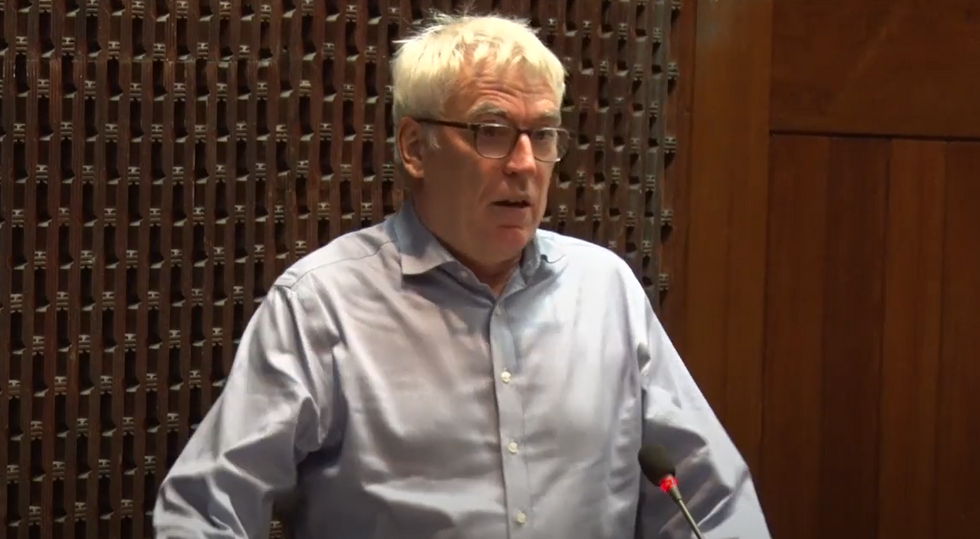WATCH: Suella Braverman - ECHR, activist lawyers and the asylum system 'paradise'
GB NEWS
Dr Owen Bennett-Jones used contacts in Pakistan to establish whether the asylum seeker's claims were true
Don't Miss
Most Read
Trending on GB News
A former senior BBC correspondent has helped a Pakistani asylum seeker avoid deportation by supporting his human rights claim.
Dr Owen Bennett-Jones, who was the long-time host of the World Service's Newshour programme, backed the man's claim that he faced arrest by security services and imprisonment if returned to Pakistan.
The broadcaster provided expert testimony about Pakistan's prison conditions to the tribunal.
The Pakistani migrant, who was granted anonymity, arrived in the UK on a student visa in 2010 after fleeing his home country.

The Home Office had argued that Dr Bennett-Jones was 'an expert on extremism rather than the Pakistan military' - which a judge slapped down
AGA KHAN UNIVERSITY
He claimed the Taliban had attempted to recruit him due to his experience as a radar technician for the Pakistani air force.
After seeking help from his commanding officer, he was arrested by military police, tortured and interrogated for nine days.
He was eventually granted a month's leave, during which he fled to the UK.
Dr Bennett-Jones used his personal contacts in Pakistan to establish whether the asylum seeker's claims were true.
He confirmed the man was on a "Passport Control List" and "would therefore be picked up on his arrival in Pakistan".
MORE HOME OFFICE RULINGS:
- Asylum seeker granted permission to stay in Britain after judge ‘confused’ Iran with his home country
- Robert Jenrick blasts ‘sick joke’ ruling that allowed Gaza family to settle in UK - and fears Starmer WON’T fix ‘loophole’
- Albanian criminal allowed to stay in Britain as his son could have a learning disability

The ex-BBC man helped the migrant buck the Home Office's deportation order
PAThe former BBC Islamabad bureau chief said he obtained this information through "good senior contacts" - but could not reveal their names as it would put them at risk.
In his report to the tribunal, Dr Bennett-Jones described the "poor conditions" of prisons in Pakistan.
The immigration judge found that deporting the asylum seeker would breach his Article 3 rights under the European Convention on Human Rights, which protect individuals against persecution and torture.
The man claimed he was wanted by the Pakistani military for desertion and would face arrest and court martial if returned.
Upper Tribunal Judge Matthew Hoffman rejected the Home Office's argument that Dr Bennett-Jones was "an expert on extremism rather than the Pakistan military".
MORE ON THE MIGRANT CRISIS:

The asylum seeker claimed the Taliban had attempted to recruit him due to his experience as a radar technician (file photo)
GETTYThe judge stated: "We find that Dr Bennett-Jones has an impressive CV."
He noted that Bennett-Jones had been the BBC's Islamabad bureau chief and reported on South Asia for 25 years.
The judge also highlighted that Bennett-Jones ran seminars for British diplomats and civil servants and held a PhD.
Judge Hoffman concluded: "We are satisfied that if the [man] was to be arrested and detained on return to Pakistan as a deserter from the PAF, then his removal would breach the UK's obligations under Article 3."
The tribunal accepted evidence that the likely punishment for desertion is imprisonment.
The judge ruled that considering all evidence "in the round", the asylum seeker was indeed on the exit control list.
The man was subsequently granted refugee status, overruling the Home Office's deportation order.








